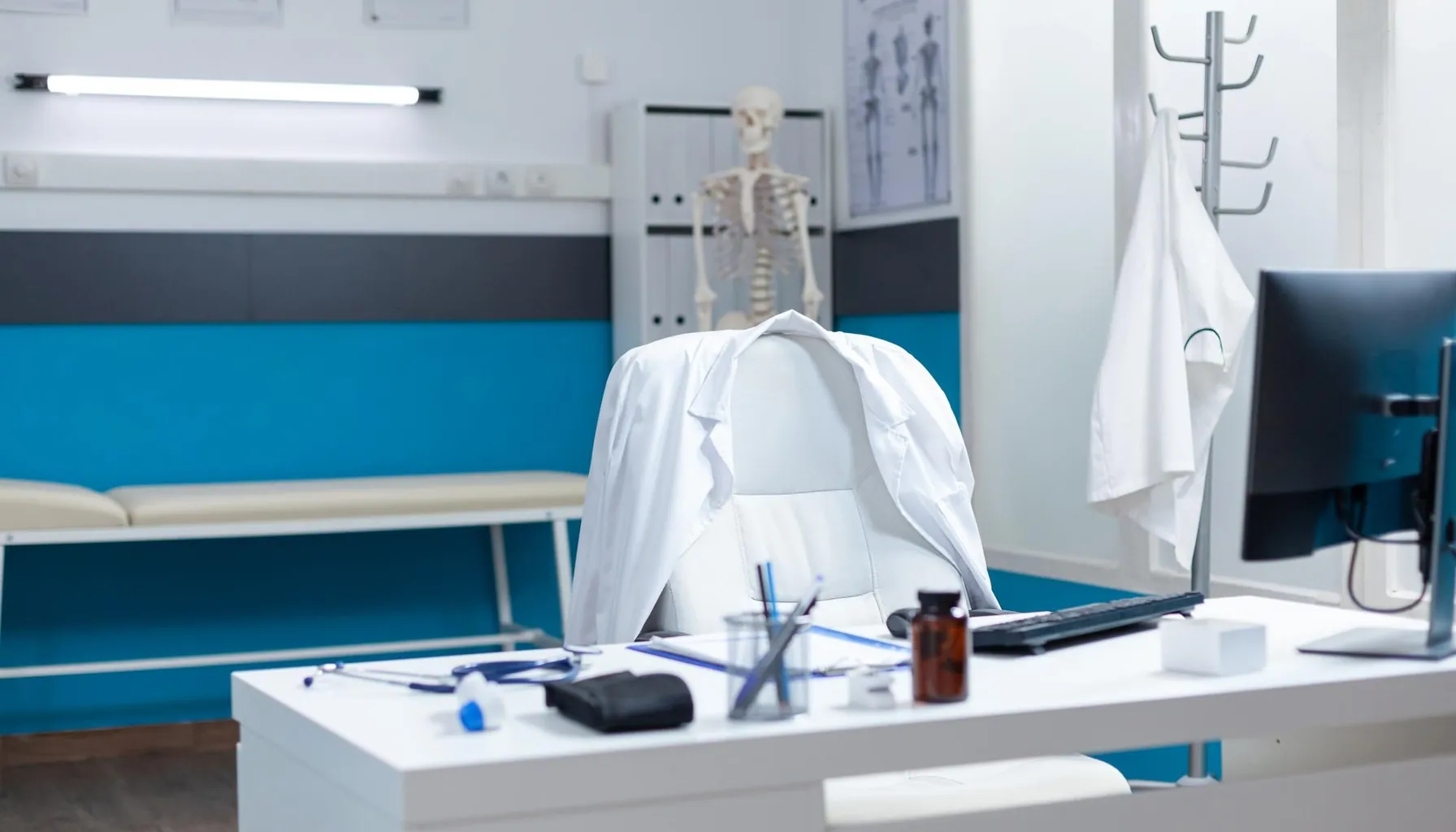Iatrophobia: Fear of Doctors and Medical Treatment

Contents:
Doctors, in the minds of most people, are associated with care and safety, but for those who suffer from iatrophobia, the very thought of visiting a clinic turns into a trial. Panic can take hold of a person so much that they postpone checkups for months and convince themselves that the body's warning signals can simply be ignored.
Such a refusal to visit a doctor can cost not only health, but also life itself. Therefore, the question naturally arises: what is iatrophobia, why does it develop, how does it manifest and what are the real ways to overcome it?
In some cases, free brain games for adults can be a helpful step, which help to gently train attention and reduce anxiety levels.

The Basics of Iatrophobia
Origins and Etymology of the Term
The word itself comes from the Greek “iatros” — “doctor” and “phobos” — “fear”. Already in antiquity, it was noted that some patients tended to panic at the sight of a doctor or the mention of medical procedures. Modern science defines iatrophobia as an irrational and persistent fear of doctors and medical interventions.
Iatrophobia as a Specific Phobia
Psychiatrists classify the phenomenon as a specific anxiety disorder. It’s not directly related to objective danger, but causes physiological reactions comparable to a life-threatening situation. Unlike mild anxiety before a visit to the doctor, in this condition a person completely avoids contact with the healthcare system.
Iatrophobia Definition and Psychological Context
Clinical Recognition of the Disorder
The formal definition includes several criteria: fear persists for at least six months, leads to avoidance of medical checkups, and disrupts daily life. Doctors weigh both the intensity of symptoms and how much a patient’s actions delay getting the right diagnosis.
Connection to Other Anxiety Disorders
Often, phobia is accompanied by other disorders. Patients with obsessive thoughts about health often also suffer from hypochondria. Fear of medicine increases fixation on bodily sensations, creating a vicious circle: anxiety grows, while requests for help become less frequent.
Iatrophobia Symptoms
Physical Reactions

People with a phobia rarely doubt its illogical nature, but this does not prevent the body from reacting:
increased heart rate and irregular rhythm;
dry mouth;
trembling and muscle tension;
dizziness and nausea;
profuse sweating;
an acute sense of terror at the sight of a doctor or equipment.
Behavioral Consequences
Over time, avoidance behavior develops. A person may cancel appointments, turn down preventive tests, or even keep quiet about troubling symptoms. In severe cases, fear undermines social ties: relatives and friends don’t understand why the person so persistently avoids help.
What Causes Iatrophobia?
Childhood Experiences and Conditioning
The origins often lie in childhood. Painful vaccinations, frightening stories about doctors, or frequent hospitalizations may have reinforced the association “doctor = pain.” These memories form a long-term pattern of fear.
Traumatic Encounters and Family Influence
Some people have had negative experiences in adulthood: poor treatment, indifference from staff, or unexpected bad news about their health. If there are anxious parents or relatives with phobias in the family, the risk increases significantly.
Iatrophobia Meaning in Modern Society

Cultural and Social Dimensions
For many cultures, the medical system is a source of trust, but for some communities it carries negative connotations. Historical injustices or abuses have left their mark, deepening mistrust.
So the natural question arises: what does iatrophobia mean today? Fear of doctors transcends the individual level and starts to impact communities in a broader context.
Pandemic Influence and Collective Fear
COVID-19 became a catalyst: people were afraid of getting infected in the hospital or undergoing an unpleasant test. But more importantly, the structure of medical care itself changed.
Crowded hospital corridors, strict safety rules, and constant restrictions made a visit to the doctor seem like an ordeal. For some, this resulted in months without diagnosis, for others the gradual transformation of minor complaints into chronic pain or severe complications.
Online consultations seemed like a convenient alternative, but for people with iatrophobia, they often turned out to be a trap: the lack of in-person contact did not provide reassurance but instead increased anxiety and reinforced the habit of postponing a real meeting with a doctor.
The pandemic has turned an individual nightmare into a social issue, a problem faced by even those who had not previously encountered these difficulties.
Who is at Risk for Iatrophobia?
Psychological Predispositions
Some people are more vulnerable to developing iatrophobia because of their past and how they perceive danger. For instance, those who endured painful procedures as children or often saw illness in the family are more likely to fear doctors. This reflects the idea of “learned fear”: negative experiences settle in memory and flare up again at the thought of medical care.
Medical and Social Factors
Patients with severe chronic conditions are also at risk. Frequent tests, painful procedures, and constant anticipation of bad news create persistent fear.
Associated Phobias
Fear Clusters Related to Medicine
Often there is a whole "cluster" of fears: fear of needles, blood, closed spaces (for example, an MRI machine). Iatrophobia is caused not only by personal memories but also by accompanying phobias that reinforce each other.
Fear of medical offices can be intertwined with other issues, including sleep problems. Sleepless nights before a visit only aggravate the severity of symptoms.
Iatrophobia Treatment Options

Psychotherapeutic Approaches
The main methods include cognitive behavioral therapy and exposure practices. The patient gradually learns to reduce their reaction to triggers.
Medications and Supportive Care
Sometimes a doctor may prescribe antidepressants or anti-anxiety medications. They don’t address the root cause of the fear itself, but they help to even out the condition a little and go through therapy more calmly.
Alternative and Complementary Methods
Others find gentler approaches such as hypnotherapy, breathing exercises or relaxation techniques to be effective. Digital tools are increasingly playing a role: apps like Mind Elevate help track your emotions and gradually change responses to stressful situations.
How to Manage Iatrophobia in Everyday Life
Practical Coping Strategies
There are techniques that help reduce stress:
making an appointment in the morning to avoid waiting in line;
using telemedicine if an in-person visit is not possible;
support from a loved one during the appointment;
switching attention with a book or music.
talking with family, participating in online groups, and gradually sharing your difficulties help reduce feelings of loneliness.
Regular exercise and a consistent morning routine reduce overall anxiety levels. Conscious breathing or a short meditation before the visit can significantly ease the condition.





